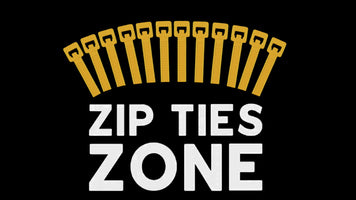1-877-445-6744 Live Support
1-877-445-6744 Live Support
our range of Zip Ties are versatile fasteners are perfect for a wide range of applications, from organizing cables at home to managing wires in industrial settings. Our Zip Ties offer exceptional strength and durability. They are available in various lengths colors and strengths, to suit your specific needs. Whether you're organizing cables, bundling items, or securing equipment, our Zip Ties provide a reliable and cost-effective solution. Choose Zip Ties for easy, efficient, and secure cable management
<<< Show Less$50.00 away from free shipping!
